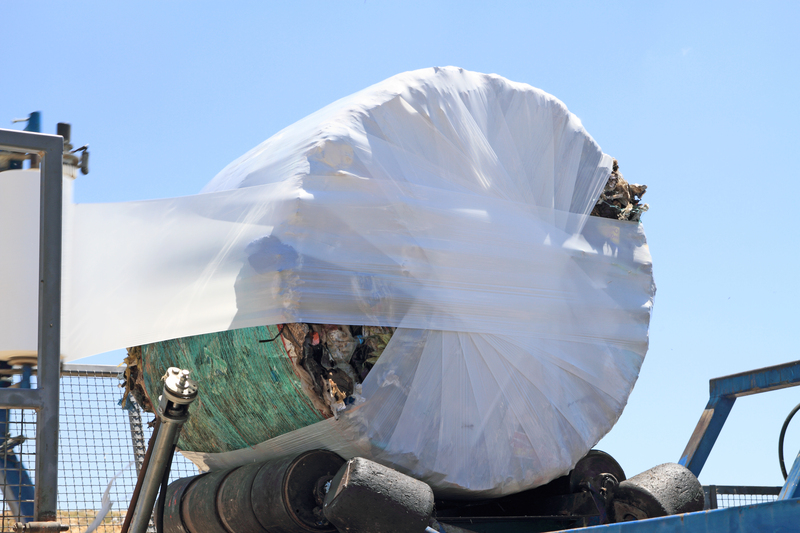Skip Hire Made Easy: Understanding Crucial Dos and Don'ts
Looking to dispose of waste efficiently? Skip hire services are a lifesaver for home renovations, garden clear-outs, and construction projects. But before you order a skip, it's essential to understand the golden rules of skip hire to avoid costly mistakes, legal trouble, or environmental harm.
What is Skip Hire?
Skip hire is the process of renting a large container--called a skip bin or waste skip--to collect and remove unwanted materials efficiently. Rather than making endless journeys to the local tip, skips enable you to dispose of large quantities of waste effortlessly in one go. Skips are available in various sizes, catering to projects big and small, and they are collected and emptied by your chosen waste management company.
Why Choose Skip Hire?
- Saves Time and Effort: Eliminate multiple trips to the landfill.
- Convenient: Delivered to your doorstep and removed when full.
- Safe and Legal: Ensures compliance with waste disposal regulations.
- Eco-Friendly: Responsible skip hire services recycle large portions of collected waste.
- Cost-Effective: Prevents hidden transportation and tipping fees.

Skip Hire Dos: Best Practices for a Smooth Waste Disposal
To ensure hiring a skip bin is hassle-free and effective, follow these essential tips and recommendations:
1. Choose the Right Skip Size
Sizing matters. Ordering the wrong size can be expensive and inefficient. Skips come in a range of sizes, usually measured in cubic yards:
- Mini Skip (2-3 yards): Perfect for small decluttering projects.
- Midi Skip (4-5 yards): Ideal for bathroom or kitchen refits.
- Builder's Skip (6-8 yards): Common for renovations and larger house clear-outs.
- Large Skip (10-14 yards): Designed for bulky or voluminous waste.
Tip: It's often more cost-effective to choose a larger skip than to order two smaller ones.
2. Find a Reputable Skip Hire Company
Research licensed and insured skip hire providers in your local area. Check customer reviews, ask for recommendations, and ensure the company follows waste management regulations. A reputable provider will help you choose the right size and advise on specific rules for your hire.
3. Place Your Skip Safely
- Place the skip on private land (e.g., your driveway) where possible for easy access.
- If the skip must be placed on a public road, you might need a council permit (often arranged by your provider).
- Ensure your skip does not block driveways, pavements, or emergency access.
- Position the skip on flat, stable ground to prevent tipping or accidents.
4. Know What You Can & Can't Put in a Skip
Not all waste is equal. Most waste skips accept general household and construction waste, but there are exceptions:
- What you can dispose of in a skip:
- Wood, metal, bricks, rubble
- Furniture, toys, general clutter
- Soil, garden waste (check if soil's clean and uncontaminated)
- Non-electrical fixtures (doors, windows)
- What you can't dispose of in a skip (see Don'ts below):
- Hazardous waste (paint, asbestos, solvents, oil)
- Electrical items (fridges, TVs, computers)
- Batteries, tyres, gas cylinders
- Medical or biological waste
Always check with your skip hire provider about their specific restrictions and ask about options for hazardous waste disposal.
5. Load Your Skip Efficiently
- Break down large items to use skip space efficiently.
- Load heavier items first at the bottom, with lighter materials on top.
- Do not exceed the fill line--overfilled skips are dangerous and may not be collected.
Smart loading reduces air gaps and saves you from needing a second skip!
6. Plan Your Delivery and Collection
- Arrange specific dates for drop-off and pick-up to fit your project timeline.
- Inform your neighbours if the skip may block a shared drive or road.
- Keep your skip covered or use a tarpaulin to prevent fly-tipping from passers-by disposing of their rubbish in your skip.
Skip Hire Don'ts: Mistakes to Avoid for a Hassle-Free Experience
Many people stumble over seemingly small errors that can incur fines, delays, or even legal issues. Here's what you must never do when using a skip hire service:
1. Don't Overfill the Skip
- Never load beyond the marked fill line.
- Overfilled skips are risky during transport and may not be collected by the provider.
- If accidental overfilling occurs, remove excess waste before collection.
2. Don't Put Prohibited Items in the Skip
- Avoid disposing of restricted or hazardous items--your provider may refuse collection or charge hefty fines.
- Illegal disposal of hazardous materials can result in prosecution.
- If in doubt, always ask the skip company before putting anything questionable in the skip.
3. Don't Skip the Permit
- Placing a skip on a public highway without the correct permit can result in substantial fines from your local council.
- Your skip hire company can often arrange a permit for you--don't assume one is in place.
4. Don't Block Access or Create Hazards
- Never put skips in places where they create obstructions to traffic or pedestrians.
- Skipping safety protocol could lead to accidents, complaints, and forced skip removal.
5. Don't Ignore Waste Sorting Policies
- Skips are for specific types of waste. Mixing general waste, hardcore, and green waste could lead to extra charges.
- Some skips are for inert waste only; others are mixed waste--confirm what's allowed ahead of time.
6. Don't Keep the Skip Too Long
- If you exceed the agreed rental period, you may incur additional charges.
- Return the skip promptly after use--especially if it's on a public road.
Tips for Cost-Effective and Responsible Skip Hire
A little planning goes a long way. Use these additional tips to save money and ensure a smooth experience when hiring a skip bin:
- Get Quotes in Advance: Shop around for the best prices but remember, cheapest isn't always best--consider service quality and reliability.
- Ask About Recycling: Choose eco-friendly skip hire companies that divert as much waste as possible from landfills.
- Check Weight Restrictions: Every skip size has a weight limit--exceeding it could cost you extra.
- Collaborate with Neighbours: Share a skip for small projects to split costs and reduce your environmental footprint.
- Book in Advance: Availability is often limited during peak renovation seasons--plan ahead to secure your skip.
- Consider Wait-and-Load: If parking is limited, some providers offer a quick "wait-and-load" skip service, where waste is loaded directly onto the skip truck without the need to leave a skip on site.
Common Skip Hire Questions Answered
How long can I keep a skip?
Most companies offer skip hire periods ranging from a few days to two weeks. If you need an extension, contact your provider as early as possible. Remember that skips requiring a street permit may have stricter limits.
How much does skip hire cost?
The price depends on size, hire period, waste type, permit needs, and your location. In the UK, small skips may start around ?90, rising to ?350 or more for large sizes or specialist waste. Additional fees may apply for permits and overloading.
What should I do if my skip gets filled by someone else?
If you're worried about others using your skip, cover it overnight and try to position it on your property. Unfortunately, if a skip on public land is fly-tipped, you may still be responsible for additional charges.
Can I put electrical items in a skip?
No. Most electrical appliances (e.g., fridges, TVs, computers) require special disposal due to hazardous components. Your local authority can direct you to dedicated recycling facilities.

The Environmental Impact of Skip Hire
Responsible skip hire companies invest heavily in recycling and proper waste management. Most modern providers sort and process skip contents, aiming to divert as much as 90%+ from landfill. When hiring a skip, ask about your company's environmental policies and do your part by segregating recyclable waste.
Conclusion: Skip Hire the Simple Way!
Making the best use of skip hire is easy if you follow these dos and don'ts. Select the right skip size, partner with a reputable company, load your waste smartly, and always respect rules and permits. Avoid the common pitfalls--especially overfilling, incorrect waste types, and permit troubles--and your skip hire experience will be seamless, cost-effective, and environmentally responsible.
If you're ready to start your project or home clear-out, use these tips to enjoy skip hire made easy--and get rid of your unwanted waste safely and efficiently. For further advice, don't hesitate to consult your local waste management expert or your chosen skip hire provider.
```